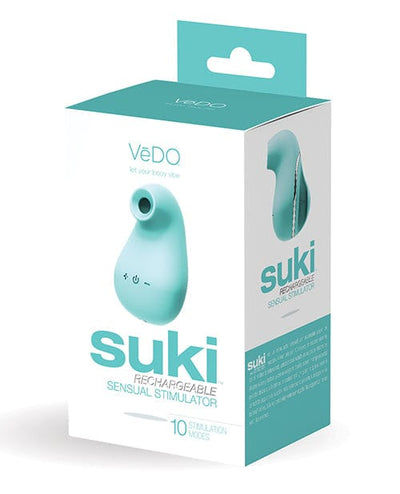Ask a Sex Therapist: Does Prostate Surgery Effect Your Sex Life?
Ask a Sex Therapist: Does Prostate Surgery Effect Your Sex Life?

Dear Cay,
At age 75, I continued to have a successful sex life but then I had my enlarged prostate, as they say, “shaved” which stopped my sexual activity. I am in my mid-80s, in good health and active. I have tried to find a way to fix the prostate gland. The urologist told me that there are many artificial means but I will not use any of these methods. The side effects of Viagra make me cold to the thought of pills. I have been on the internet for days and cannot find any answers to my problem.
Thanks,
SG
Dear SH,
Let me first commend you for not giving up on your sex life! Humans are sexual creatures from birth until death. I have to wonder about your definition of “successful” sex life. We will get back to that in a moment.
Now let’s talk plumbing. The prostate gland is a small, walnut-sized organ that sits below the bladder. The prostate surrounds the urethra, the tube that drains the bladder. The function of the prostate is to produce seminal fluid, a carrier for sperm, which is also delivered via the urethra. The prostate also serves as the organ of propulsion during orgasm; it contracts rapidly forcing seminal fluid and sperm out of the urethra.
Main Prostate Problems and Treatments
Three main things can go wrong with the prostate. A man can develop an infection (prostatitis), enlargement (benign prostatic hyperplasia or BPH), or cancer of the prostate. Prostatitis is more common in younger men. Infections vary in terms of their severity and treatability. Half of all men have some form of BPH by the age of 50 and by the age of 85, the prevalence rises to 90%. When the prostate enlarges, it constricts the urethra causing problems with urination. The “shaving” procedure you had was probably TURP or transurethral resection of the prostate where the surgeon goes in through the urethra and makes small incisions to remove the part of the prostate that is blocking urine flow. Healing takes place with the use of a catheter. TURP is the most common form of surgical intervention for BPH. Some men who have TURP end up with retrograde ejaculation where semen is ejaculated into the bladder instead of out through the urethra.
Less invasive procedures are now used to resect the prostate such as Rezum water vapor therapy, an in-office procedure that uses steam to treat the excess prostate tissue, transurethral microwave therapy (TUMT) which uses microwave heat to kill excess prostate tissue, and UroLift system, where a permanent device is placed to lift and hold enlarged prostate tissue out of the way.
What Is Prostate Cancer And How Common Is It?
Prostate cancer is the most common form of cancer among American men. Treatment options vary according to the grade and stage of cancer, that is, whether it is contained in the prostate or has spread to other organs. The medical community typically recommends prostate cancer screenings (in the form of Prostate-Specific Antigen tests, a simple blood test, and digital exams to determine the size of the prostate) in men 50 or older. If there is a history of prostate cancer in a gentleman’s family and he is of African American descent, screenings need to begin earlier at 40 or 45.
In men who are having mild symptoms of prostatitis or BPH such as not being able to urinate or fully empty the bladder, one treatment option before doing something more invasive is to monitor the situation. During this time, try drinking fewer liquids before bedtime and drink less caffeine and alcohol. Also, try avoiding over the counter medications that can worsen the problem like decongestants or certain antihistamines like Benadryl. Read labels of cold and sinus medications before purchase.
Should I Take Medications to Reactivate My Sexlife?
If these lifestyle changes are not impacting the symptoms, the first step could be medications including Alpha-blockers which relax the prostate and the neck of the bladder to assist urinary flow, 5-alpha reductase inhibitors (5-ARIs) that shrink the prostate and prevent further growth, and PDE5 inhibitors like Viagra, Cialis, and Levitra which help increase urinary flow and improve symptoms. Men with rather enlarged prostates might take more than one of these medications.
Men who do not want to take medications have tried supplements like Saw palmetto which has shown some benefit. Other supplements include Beta-sitosterol, Pygeum, and Rye Grass. Consult with a qualified nutritionist or herbalist about dosage and at least inform your doctor as the supplements could interact with treatment.
Is It Possible to Reactivate The Prostate After Surgery?
I am sorry to say that it is not possible to reactivate the prostate once it has been resected. Surgical procedures, even the nerve-sparing variety, are invasive and inadvertently damage surrounding nerves and tissue. According to the research, Viagra, Cialis, or Levitra are your best options for erectile restoration. Among men who have had TURP, 60% of them are able to have erections using these medications. Remember that ED medications are not appropriate for everyone and do not work for every patient. Remember that “successful” sex does not equal an erection upon demand and intercourse every time. Great pleasure is still possible without erections in the form of oral sex, manual stimulation, making out, using toys, etc. Too many men walk away from sex once their erections are unreliable. There is still a pleasure to be had; don’t give up! If you need further help, consider seeing an AASECT-Certified Sex Therapist in your area. Here is a link to find one: https://www.aasect.org/referral-directory






Leave a comment